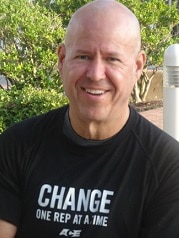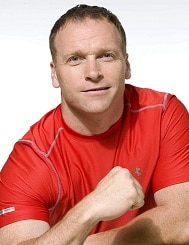
Healthy Food Habits: How 9 Top Health Experts Actually Eat
Healthy food habits are hard-earned. We spend countless hours trying to figure out how to best manicure our daily eating patterns, immersing ourselves in the literature and studies driven by top nutrition and fitness professionals. One day butter is back, eggs reduce stroke risk, and whole grains improve blood cholesterol, while the next day saturated fat (found in both butter and eggs) causes heart disease, and gluten (found in many whole grains) is a leading cause of chronic inflammation.
Could randomized controlled trials—the gold standard in scientific research—clear up this confusion? Sorry: They’re not practical for answering the bigger questions in nutrition science (Sibbald & Roland 1998). It’s easy to see why: The practice would require assigning a group of people a certain diet for a very long time to figure out if specific foods cause particular diseases or conditions. Instead, we have to rely on observational studies, which don’t intervene in diets; they just track dietary patterns in populations over time. This kind of science leaves room for bias, contradiction and confusion, which translates into dozens of diets, fads and myths and the elimination of certain food groups from some diets (Maki et al. 2014).
Nevertheless, research has gleaned important insights over the years that have made a huge impact on diet. If not for the research, “we would not know the benefits of the Mediterranean dietary patterns,” says Frank B. Hu, a professor of nutrition and epidemiology at Harvard School of Public Health, “nor would we know that folate deficiency among pregnant women causes birth defects; we would not know trans fat is bad for heart disease; and we would not know the notion that the type of fats [we eat] is more important than total fat [intake].”
That being said, have you ever wondered what the experts and trainers themselves—the ones actually conducting the studies, meal plans, lectures and journals—eat on a daily basis? And what experiences have influenced and shaped their dietary patterns and healthy food choices?
We asked some of the nation’s top nutrition researchers and fitness experts to share the experiences, studies and evidence that have been compelling enough to trigger a change in their own eating practices. Here are the inside stories—and the evidence—that have made an impact.

Gardner wants to reverse popular attitudes toward meat protein. “Plants have a full profile of amino acids—we eat so much protein every day that it doesn’t matter if they’re in the appropriate proportions. This reinforced my own decision to go vegetarian. I don’t lose muscle, and I’m not wasting away.”
Christopher Gardner, PhD
Nutrition Researcher
Gardner, a professor of medicine at Stanford University, directs the Stanford Prevention Research Center’s Nutrition Studies Group. For the past 20 years, his research has relied on randomized, controlled intervention trials to investigate whether various dietary components or food patterns influence chronic‐disease risk factors such as cholesterol, body weight and inflammatory markers.
Gardner has been a vegetarian since 1983. Though he changed for ethical, nonscientific reasons, adopting the plant‐based habit yielded a number of profound observations. After attending his first “Menus of Change” conference—a sustainable‐food event co‐presented by the Culinary Institute of America and Harvard T.H. Chan School of Public Health—Gardner discovered a concept called the “protein flip,” which encourages people to move plant foods to the center of their diet and shift meat to the fringes.
What about the presumed loss of meat protein in the flip? Well, Americans already average more than 80 grams of protein a day—nearly 1.5 times the Recommended Dietary Allowance (CDC 2015). “Everyone seems to think plants are missing amino acids. They aren’t,” says Gardner, who has since helped launch and promote the protein flip, where meat is more like a condiment than a main course.
We once thought certain plant foods had to be eaten together, at the same time, for the body to gain their full protein value. We now know that is not true. The concept of the flip, presented by Gardner, is now included every year at the annual conference.
“The idea is brilliant,” says Gardner. “I show people that plants have a full profile of amino acids—we eat so much protein every day that it doesn’t matter if they’re in the appropriate proportions. This reinforced my own decision to go vegetarian. I don’t lose muscle, and I’m not wasting away. Eat more plants! They have plenty of protein.”
Gardner’s best advice for interpreting studies and data for your clients is to embrace variability. “Not everyone should be vegan or Mediterranean or Paleo. People thrive on different balances of macronutrients.” His most current study (final papers still to be published) compares the weight loss effects of healthy low‐carb diets with those of healthy low‐fat diets. Participants failed and thrived on both diets.
“We weren’t seeing if one was better than the other,” says Gardner. “Some lost 50–60 pounds on each diet . . . some gained 20 pounds on each one.” The point is that there isn’t one best diet for everyone, and findings in one particular study don’t apply to everyone. Outliers can skew results. “Just eat whole foods,” Gardner says.
See also: 5 Big Benefits of Plant-Based Diets

Jordan lost 270 pounds and specializes in helping people who need to lose at least 100 pounds. “The minute my clients make this about one thing, like sugar or saturated fat, they begin to lose steam. Not all knowledge is power. [Power is] the application of that knowledge.”
Lee Jordan
Trainer, Health Coach
Jordan is an ACE‐certified personal trainer and health coach. Having lost over 270 pounds himself, Jordan has helped people all over the United States overcome obesity and live fuller lives through “30 Seconds to Victory,” his physician‐endorsed wellness program.
Jordan specializes in clients who need to lose 100 pounds or more. He stresses that losing weight isn’t about one nutrient, such as sugar or fat. “The minute my clients make this about one thing, like sugar or saturated fat, they begin to lose steam,” says Jordan. A wholesome diet should be holistic. Having grown up in the low‐fat generation, Jordan recalls the “Snackwell syndrome” as a prime example: When clients fixate on one thing, like fat, they lose track of what the holistic approach to weight loss and wellness is all about.
Jordan focuses on more behavioral stories, articles and studies, which help him reach his clients at a deeper level. Jordan recalls reading one of Dr. David Katz’s articles, “What REALLY Kills Us” (Katz 2013), in which Katz resurrects a study published in the Journal of the American Medical Association in 1993, titled “Actual Causes of Death in the United States.” This study identified the major external factors that contribute to death in the United States. Eighty percent of premature deaths are based on just three things: dietary patterns, physical activity levels and tobacco use (McGinnis & Foege 1993). Jordan knew from his own personal transition the importance of healthy food and exercise, but never imagined they had such an impact on longevity in the American population.
While McGinnis and Foege didn’t talk about specific dietary patterns, Jordan found his answer in a book called The End of Overeating, by Dr. David A. Kessler (Rodale 2010). In reading that book, Jordan came to understand that not all calories are created equal. “Dr. Kessler got me thinking about how calories are all different. It was then that I realized that I, personally, need to be more intentional about what food I’m taking in,” reflects Jordan, who now emphasizes the necessity of real, healthy food to both his family and his clients—the kind of food that doesn’t come from a box.
And while Jordan doesn’t have a set food theology, he sets out to help his clients implement the importance of calories with quality. “Not all knowledge is power,” insists Jordan. “[Power is] the application of that knowledge.” That’s where Jordan places emphasis in his work. He doesn’t just tell his clients how to change or what to eat; instead, he lets them create their own ideas and solutions on how to change and improve their current lifestyle. “That’s when you begin to see a difference.”

A Len Kravitz presentation convinced her that water is the most crucial nutrient. “Len changed my views on water in one single lecture. I believed it, and I acted on it. My energy improved dramatically, and I’ve been a believer ever since.”
Trina Gray
Entrpreneur, Award‐Winning Club Owner
Gray is a successful fitness entrepreneur, national presenter and owner of the award‐winning Bay Athletic Club in Alpena, Michigan.
Gray had been in the industry for nearly a decade when the light bulb finally went off for her while attending an IDEA® World Convention. Len Kravitz, PhD, program coordinator of exercise science at the University of New Mexico, Albuquerque, was presenting on “the most important nutrient” (Kravitz 2008). To her surprise, it was water. “Something so simple and so basic,” recalls Gray, “that I had been grossly overlooking and underestimating in my own life and in my education to my clients.”
The Centers for Disease Control and Prevention estimates that 43% of U.S. adults drink less than 4 cups of water a day, and 7% consume no drinking water at all (CDC 2013). As Americans, we get much of our overall fluid intake from sodas, juices, alcohol and food, all of which add extra calories. Over time, these surplus calories may lead to weight gain.
Healthy hydration enhances not only mental performance but physical performance as well. A 2007 study published in the Journal of the American College of Nutrition found that dehydration can reduce motivation and effort, cardiovascular function and metabolic reactions (Murray 2007).
“After listening to Len’s lecture,” says Gray, “I immediately changed my habits. I also started incorporating ‘requirements’ for my clients in all of our boot camps and special programs. Len changed my views on water in one single lecture. I believed it, and I acted on it. My energy improved dramatically, and I’ve been a believer ever since!”

Loomis thinks doctors should prescribe better diets and fewer pills. “The idea of using food as medicine somehow totally resonated with me. The results were a miracle. I lost 30 pounds, my cholesterol dropped over 100 points, and my sleep apnea disappeared.”
James Loomis, MD, MBS
Internist
Dr. Loomis is medical director of Barnard Medical Center in Washington, D.C. He has served as team internist for the St. Louis Rams and the St. Louis Cardinals.
Loomis notes that his extensive medical school education required little to no formal training in nutrition. For most of his life, however, he ate healthy foods balanced with “bad” foods in moderation and exercising heavily to make up for his indulgences. After an injury left him unable to exercise, he started developing the symptoms shared by his patients—weight gain, high cholesterol, sleep apnea. He began to see a cardiologist, whose only solution was medication. Diet was never an answer to medical problems—the prescribed remedy was always a pill.
The 2011 documentary Forks Over Knives caught Dr. Loomis’s attention and helped shift his perspective. The film is heavily based on one of the country’s best‐selling nutrition titles, The China Study (BenBella Books 2006), a 20‐year collaboration among Cornell University, Oxford University and the Chinese Academy of Preventive Medicine (Campbell & Campbell 2004). The book, film and study conclude that people who shift their diets from animal‐based to plant‐based can eliminate or better control chronic diseases like cancer and diabetes.
“The idea of using food as medicine somehow totally resonated with me,” says Loomis, who proceeded to put himself on a plant‐based diet for 3 months. “The results were a miracle. I lost 30 pounds, my cholesterol dropped over 100 points, and my sleep apnea disappeared.” The physician has since shifted his practice from sick care to a more proactive wellness approach. “You can’t just cure things with pills,” says Loomis, who reports that his patients who have engaged in lifestyle dietary changes have had huge positive results. “I’ve seen type 2 diabetes reversed.”
See also: Bending American Food Culture

Durkin believes eating well is eating clean: “I’ve cut out 90% of the white carbs, white sugar and alcohol from my diet. I don’t follow fads, but instead change things based on personal experience and how I feel. I’m now healthy and feeling better than I ever have before.”
Todd Durkin, MA
Performance Coach, Author
Durkin is an internationally recognized performance coach, personal trainer and author who motivates, educates and inspires people worldwide.
Like many veterans of the IDEA fitness scene, Durkin adhered to the once highly popular low‐fat/high‐carbohydrate regime of the late 1990s to fuel his avid workout routines. “My portions were huge,” reports Durkin, who used to enjoy pasta and bread together on a regular basis—causing massive shifts in his energy, which would spike, then plummet. “I was working out so much I wasn’t as worried about the quality of my diet. I had a football mentality and was carbo‐loading 5 days a week. It’s the classic American diet. Changing my diet has done a lot of things for my body and my energy.”
While performing as an elite trainer on NBC’s Series Strong, Durkin met several nutritionists who advocated ketogenic‐
like principles, emphasizing fewer carbohydrates and including more healthy fats, quality proteins and lots of vegetables. Following suit, Durkin has incorporated more heart‐healthy fats and cleaner proteins, cut out most refined carbohydrates, included more probiotics and monitored his glycemic levels.
The ketogenic diet, also known as the very low‐carbohydrate diet, has been used since the 1960s as a common treatment for obesity. And while further studies are warranted, it has more recently been investigated as a treatment for diabetes, cancer, and certain cardiovascular and neurological diseases (Paoli et al. 2013). “Eating well is eating clean: I’ve cut out 90% of the white carbs, white sugar and alcohol from my diet. I don’t follow fads, but instead change things based on personal experience and how I feel. I’m now healthy and feeling better than I ever have before.”

Katz worries about the environmental effects of people eating so much meat. “Healthy people make a healthy planet. If we care enough about the confluence of both our planet and our health, then everyone needs to eat an overwhelmingly plant‐based diet.”
David Katz, MD, MPH, FACPM, FACP, FACLM
Preventive Medicine Researcher
Dr. Katz is the founding director of Yale University’s Yale‐Griffin Prevention Research Center and a past president of the American College of Lifestyle Medicine. He has published over 200 scientific articles and textbook chapters, and 15 books on preventive medicine and nutrition.
In the big picture, Katz says, the message has always been to eat more fruits and vegetables, more high‐quality fats from plant sources, and more beans and lentils. Like many of us, Katz used to eat fewer fats in his overall diet, but he now includes more plant‐based oils. “The overwhelming weight of evidence demonstrates that if dietary patterns get a few key things right, like regular fruit and vegetable intake, we can significantly reduce all major chronic diseases,” says Katz, who has spent most of his career running clinical nutrition trials. Clinical trials, however, have major limitations—you can’t use them to look at the effects of dietary habits across populations.
Katz points to one of the biggest influences in nutritional studies (and on his own dietary patterns): The North Karelia Project, launched in 1972. North Karelia is an area of Finland that had one of the highest mortality rates from cardiovascular disease in the world, owing to multiple risk factors—most notably a high smoking population, an unhealthy diet with excessive amounts of saturated fat and salt, and little physical activity.
The project radically adjusted the habits of the entire community for over 20 years—bringing down butter intake and replacing it with plant‐based oils; increasing consumption of fish, poultry, fruits, vegetables and salads; improving physical activity levels; and drastically reducing smoking rates. After just 5 years, the project spread to all of Finland. Death rates in North Karelia from coronary heart disease dropped by 73% over the course of the study, and by 65% throughout all of Finland (Puska 2002).
“It’s a vivid illustration of how to add years to life and life to years by eating more beans and lentils, less meat, more olive oil and less butter,” reports Katz, who has been greatly influenced by the numerous studies supporting a more plant‐based diet (Dauchet 2006). In 2014 he launched the True Health Initiative, a coalition of health experts committed to teaching lifestyle as medicine: the idea that a healthful diet based on minimally processed, mostly plant‐based foods can help prevent chronic diseases.
But now more than ever, Katz emphasizes the importance of eating for a more sustainable world. “Healthy people make a healthy planet,” says Katz, who fears the long‐term consequences of our omnivorous diet on the environment. “If we care enough about the confluence of both our planet and our health, then everyone needs to eat an overwhelmingly plant‐based diet,” he says.

Nestle says the best dietary advice stands the test of time. “Once I learned about nutrition in the early 1970s, I developed dietary habits that work for me, and nothing that has happened since has given me any reason to change them.”
Marion Nestle, PhD, MPH
Author, Nutritionist
Nestle is a professor in the department of nutrition, food studies and public health at New York University. She has written six prize‐winning books, including Food Politics: How the Food Industry Influences Nutrition and Health (University of California Press 2007) and Why Calories Count: From Science to Politics (University of California Press 2013). She blogs at www.foodpolitics.com www.foodpolitics.com.
When it comes to her personal eating patterns, Nestle keeps things simple and to the point. “Once I learned about nutrition in the early 1970s, I developed dietary habits that work for me, and nothing that has happened since has given me any reason to change them,” says Nestle, who has avoided the numerous fads, bandwagons and nutritional tugs of war that regularly crop up in the media. “Basic dietary advice since the 1950s has recommended eating a largely—not necessarily exclusively—plant‐based diet, balancing calories and not eating too much junk food.” Nestle emphasizes an overall balance, eating what she likes in moderation and getting pleasure from what she eats. “While everyone is arguing about saturated fat vs. sugar, I just eat real food and don’t have to worry about any of that.”

Johnson stresses listening to your body and changing things up based on goals, dieting history, stress, gender and age. “What works for one may not work for another. The most holistic, realistic, stable advice comes out of universities, not from US Weekly.”
Chalene Johnson
Author, Speaker, SmartLife™ Founder
Johnson, 2021 IDEA Jack LaLanne Award recipient, is a lifestyle and business expert, motivational speaker, New York Times best‐selling author and the founder of the SmartLife movement. The Huffington Post recently recognized Johnson as one of the 50 Must‐Follow Women Entrepreneurs in 2017.
After 25 years in the industry, Johnson says one thing rings true for her: There’s no magic bullet for optimal health. “Everyone is different,” she says, “and what works for one may not work for another.” Johnson stresses the importance of avoiding long‐term calorie deficits, knowing how to listen to your body and changing things up based on goals, dieting history, stress, gender and age. Johnson tried intermittent fasting—an eating pattern with proven health benefits that cycles between periods of eating and periods of fasting (Barnosky et al. 2014)—for nearly 9 months, but noticed an increase in body fat and a drop in energy levels. Very low‐calorie diets are not efficient enough to fuel proper physical activity, nor are they sustainable for long periods of time (Kinucan & Kravitz 2006).
Many people believe that by following a certain workout program or diet routine, they will begin to adopt the characteristics of the plan’s creator. Instead, consumers need to approach exercise and diet routines individually. “The most holistic, realistic, stable advice comes out of universities, not from US Weekly,” Johnson says.

Hu says there will always be inconsistencies in nutritional knowledge. “Nutritional sciences do not move in straight lines. There are a lot of inconsistent findings. But that is why we need more research, and more rigorous and solid research, in nutrition and health.”
Frank Hu, MD, PhD
Obesity Prevention Expert
Dr. Hu is a professor of nutrition and epidemiology and co‐director of the obesity, epidemiology and prevention program at Harvard T.H. Chan School of Public Health. He has published more than 800 original papers and reviews, as well as a textbook on obesity epidemiology.
In general, Hu practices what he preaches. He, like many experts, stresses the mantra that one size does not fit all. Having grown up in China, he originally followed the traditional Asian diet. Based on his own findings, his diet now combines the best elements of two dietary traditions from Asia and Europe. Hu still eats a lot of soy products and legumes, typical of Asian dietary patterns, but has swapped in brown rice for white. Olive oil, nuts and seeds from the Mediterranean diet have become his primary sources of dietary fats.
One of the biggest influences on his current diet comes from a study he published nearly two decades ago, looking at how different dietary fats affect coronary heart disease. Back then, the low‐fat message was still very prevalent. “We found for the first time that the type of fat was more important than total fat,” says Dr. Hu, whose findings also reported that replacing total fat with carbohydrates had no benefits for overall health (Hu et al. 1997).
“It was the first time we found that total fat wasn’t related to heart disease risk,” reports Hu, who at the time was surprised at the outcome. Hu began to follow a more Mediterranean‐style diet, adding more healthy fats from plant‐based sources and seafood into his diet, reducing saturated fats and eliminating trans fats from partially hydrogenated oils. “This was the turning point, not only in the science of nutrition overall, but in my own thinking [in regard to what] diet to follow for myself,” says Hu.
What about all the confusion and inconsistencies about dietary best practices emerging from nutritional research?
“Nutritional sciences do not move in straight lines,” Hu says. “There are a lot of inconsistent findings. But that is why we need more research, and more rigorous and solid research, in nutrition and health. I think a lot of important advances have already been made through nutrition science, and the health of the public has been improved because of nutritional sciences.”